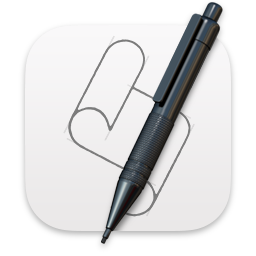JavaScript OSA, (originally JavaScript for OSA, abbreviated as JSOSA), is a freeware inter-process communication scripting language for the Macintosh computer.
Freeware is software, most often proprietary, that is distributed at no monetary cost to the end user. There is no agreed-upon set of rights, license, or EULA that defines freeware unambiguously; every publisher defines its own rules for the freeware it offers. For instance, modification, redistribution by third parties, and reverse engineering without the author's permission are permitted by some publishers but prohibited by others. Unlike with free and open-source software, which are also often distributed free of charge, the source code for freeware is typically not made available. Freeware may be intended to benefit its producer by, for example, encouraging sales of a more capable version, as in the freemium and shareware business models.

In computer science, inter-process communication or interprocess communication (IPC) refers specifically to the mechanisms an operating system provides to allow the processes to manage shared data. Typically, applications can use IPC, categorized as clients and servers, where the client requests data and the server responds to client requests. Many applications are both clients and servers, as commonly seen in distributed computing. Methods for doing IPC are divided into categories which vary based on software requirements, such as performance and modularity requirements, and system circumstances, such as network bandwidth and latency.
A scripting or script language is a programming language for a special run-time environment that automates the execution of tasks; the tasks could alternatively be executed one-by-one by a human operator. Scripting languages are often interpreted.
Contents
JavaScript OSA uses the "core language" of the Mozilla implementation of the JavaScript programming language, (see SpiderMonkey). The language is used as an alternative to the AppleScript language. Its use is unrelated to web browser-based scripting. It can be seen as having a similar function to Microsoft's JScript .NET language on Windows machines, although there is no interoperability between the two languages' system-level scripting.

Mozilla is a free software community founded in 1998 by members of Netscape. The Mozilla community uses, develops, spreads and supports Mozilla products, thereby promoting exclusively free software and open standards, with only minor exceptions. The community is supported institutionally by the not-for-profit Mozilla Foundation and its tax-paying subsidiary, the Mozilla Corporation.
JavaScript, often abbreviated as JS, is a high-level, interpreted scripting language that conforms to the ECMAScript specification. JavaScript has curly-bracket syntax, dynamic typing, prototype-based object-orientation, and first-class functions.

A programming language is a formal language, which comprises a set of instructions that produce various kinds of output. Programming languages are used in computer programming to implement algorithms.





